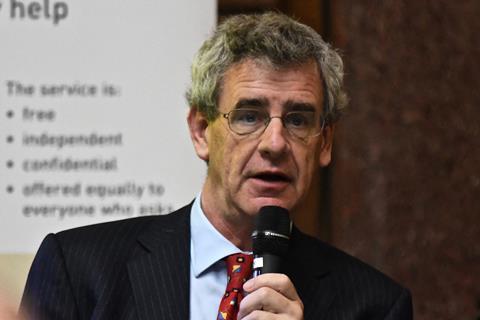On 11 November 2024, Bates Wells was happy to host an occasion to have fun the twentieth anniversary of the Skilled Negligence Attorneys Affiliation’s (PNLA) formation. In that point, the PNLA has labored to enhance the method for resolving disputes in an space that presents specific challenges for entry to justice.

Hostile prices stifle claims
Giving the occasion’s keynote handle, The Proper Hon Lord Briggs of Westbourne highlighted how the prospect of an exorbitant prices invoice if the declare fails could be a main barrier for entry to justice. Lord Briggs cautioned that: ‘Many meritorious claims are, probably, stifled because of price danger.’ Different claimants ‘could also be compelled by the price danger to just accept a mediated settlement for a lot lower than their declare is basically value.’
Lively prices administration by the courts is one approach to hold recoverable prices proportionate to the scale and complexity of the declare. However the nice irony of price budgeting is the effort and time that’s typically expended in attending to agreed budgets.
For smaller claims, the federal government’s reply has been to restrict recoverable prices to mounted tariffs. The extension of the mounted recoverable prices regime in October 2023, to cowl most claims as much as £100,000, has been controversial to say the least. Lord Briggs divided criticisms of the system into two broad themes:
The regime places kind earlier than substance and fails to sort out the true subject, which is making the court docket course of extra environment friendly and decreasing the necessity to incur massive quantities of prices.
The info that has been used to evaluate appropriate ranges for mounted prices is poor or accommodates flawed assumptions.
The Supreme Court docket justice acknowledged that every of those criticisms is severe. Nonetheless, he supplied ‘room for optimism’. As regards the primary level, mounted recoverable prices shouldn’t be considered in isolation, however as one amongst many ‘angles of assault’ in securing higher entry to justice. Lord Briggs’s Civil Courts Construction Evaluation in 2016 highlighted the necessity for higher use of expertise, together with the event of an internet court docket, and voluntary adjudication, amongst different measures to be pursued along with mounted prices.
The second space for criticism is a traditional instance of the satan being within the element. Consideration must be given to bettering and updating the information and the way it feeds via into guidelines and tables. These should not turn out to be so sophisticated in order to be unmanageable. However that shouldn’t be a motive to desert the regime altogether.

Lengthen QOCS
One space that Lord Briggs recognized as ripe for refinement is using certified one-way prices shifting (QOCS), which protects an unsuccessful claimant in private damage instances from having to pay hostile prices in most circumstances. The rationale behind that is the asymmetry between particular person litigants and well-resourced, insured defendants.
Again in his 2016 report, Lord Briggs famous {that a} related asymmetry existed in skilled negligence claims outdoors the medical sphere. The shortage of QOCS meant that entry to justice was lagging behind for these claims. In his speech to the PNLA, which has raised related considerations, Lord Briggs renewed that decision for QOCS to be prolonged to non-medical skilled negligence claims.
Except for prices, Lord Briggs’s speech highlighted a number of areas the place progress has been made to enhance entry to justice. A higher use of expertise by the courts, the voluntary adjudication scheme for skilled negligence and the power for courts to compel ADR have all been optimistic developments. Lord Briggs additionally reminded the career the very important however typically ignored contribution performed by professional bono work.
In terms of litigation prices, choices and opinions turn out to be extra advanced and divisive. Fastened recoverable prices have a task to play in sure instances, however it’s removed from clear that the present regime strikes the best steadiness. Equally, extending QOCS might profit claimants, however considerations have been raised previously in regards to the potential to create an business of claims farming or push up insurance coverage premiums.
These dangers would must be thought of rigorously, to make sure that any reforms didn’t inadvertently find yourself decreasing entry to justice. Nonetheless, in an space the place there are not any simple solutions, considerate contributions to the general public debate akin to this from Lord Briggs are vitally necessary.
Ashley Morgan, proposals and consumer intelligence supervisor, and Tim Constable, companion, Bates Wells















:quality(70)/cloudfront-us-east-1.images.arcpublishing.com/archetype/ZZJAZCVMVBCTRAZCBQBW6ILR3M.jpg?w=120&resize=120,86&ssl=1)





